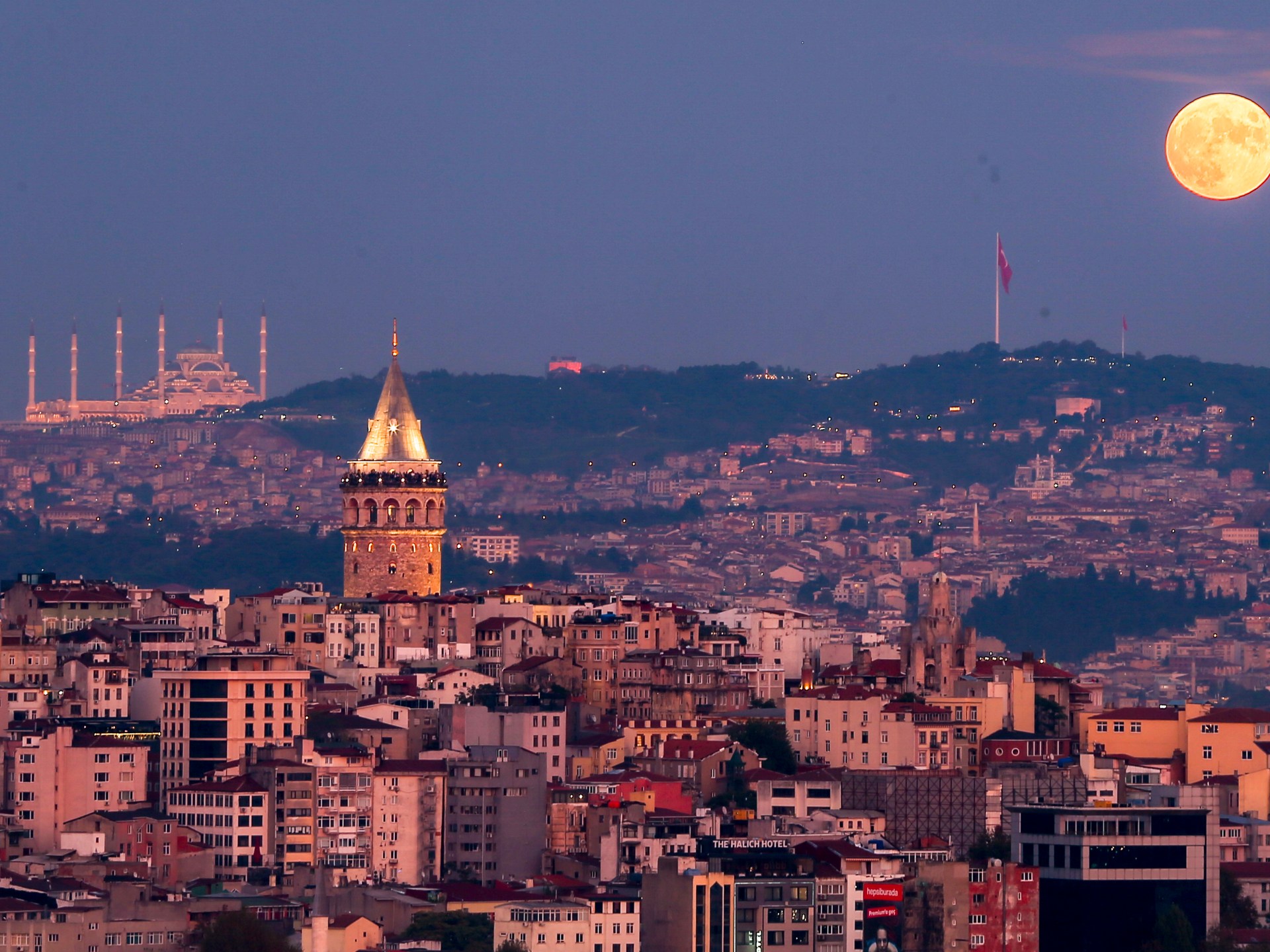UN says the Damascus-proposed conditions for aid delivery to northwest Syria are ‘unacceptable’
BEIRUT (AP) — The United Nations agency responsible for overseeing humanitarian aid has described conditions placed by the Syrian government on aid deliveries from Turkey to northwest Syria as “unacceptable.”
The future delivery of aid across Syria’s northern border was thrown into question Tuesday after the U.N. Security Council was unable to agree on either of two competing proposals to extend the mandate for bringing aid from Turkey by way of the Bab al Hawa border crossing.
Two days later, Syria’s ambassador to the U.N. said Damascus would give voluntary permission for the U.N. to use the crossing for six months, on condition that aid delivery would be done “in full cooperation and coordination with the government,” that the U.N. would not communicate with “terrorist organizations” and their affiliates, and that the International Committee of the Red Cross and the Syrian Arab Red Crescent would run aid operations.
The Syrian government has given a green light for the United Nations to use a key crossing from Turkey to the country’s rebel-held northwest that was closed earlier this week.
Syria’s Information Ministry has revoked the BBC’s media accreditation over alleged bias. The decision comes days after the British public broadcaster released a documentary linking a multibillion-dollar illicit drug industry to members of Syrian President Bashar Assad’s family and the country’s mil
The U.S. military says Russian fighter jets have “harassed” American drones over Syria for the third day in a row.
Jordan’s foreign minister has called for investment into conflict-ravaged Syria’s crippled infrastructure to speed up refugee returns.
In a letter sent to the Security Council on Friday, a copy of which was obtained by The Associated Press on Saturday, the U.N. Office for the Coordination of Humanitarian Affairs, or OCHA, said the Syrian proposal called two of those conditions “unacceptable” for carrying out “principled humanitarian operations.”
The prohibition on communicating with groups considered “terrorist” by the Syrian government would prevent the U.N. and partner organizations distributing aid from engaging “with relevant state and non-state parties as operationally necessary to carry out safe and unimpeded humanitarian operations,” the letter said.
Stipulating that aid deliveries must be overseen by the Red Cross or Red Crescent is “neither consistent with the independence of the United Nations nor practical,” since those organizations “are not present in north-west Syria,” it said.
The letter also noted that the Syrian government’s request that aid deliveries should be carried out in “full cooperation and coordination” with Damascus requires “review” and that the mechanism for aid delivery should not “infringe on the impartiality.., neutrality, and independence of the United Nations’ humanitarian operations.”
Aid delivery to the rebel-held enclave in the northwest has been a perennial point of contention during Syria’s 12-year-old uprising-turned-civil war.
The Syrian government of Bashar Assad and its ally, Russia, which is a member of the Security Council, want all aid deliveries to be run through Damascus. Opponents of Assad and humanitarian organizations say this could lead to aid being diverted from the vulnerable population in the northwest.
Emma Beals, a non-resident fellow at the Middle East Institute who has studied aid delivery, said people living in northwest Syria “face grave risks” if humanitarian assistance depends on permission from Damascus.
“The regime has used aid denial and attacks on aid workers as a military strategy for twelve years,” she said.
The Security Council initially authorized aid deliveries in 2014 from Turkey, Iraq and Jordan through four crossing points into opposition-held areas in Syria. But over the years, Russia, backed by China, had pushed the council to reduce the authorized crossings to only one – Bab al-Hawa – and the mandates from a year to six months.
After a deadly magnitude 7.8 earthquake that hit Syria and Turkey in February, Assad opened two additional crossing points from Turkey, at Bab al-Salameh and al-Rai, to increase the flow of assistance to victims, and later extended their opening until Aug. 13. However, in practice, most aid has continued to cross via Bab al Hawa.
A limited amount of U.N. aid has entered the opposition-held northwest by crossing battle lines from government-held areas.
After February’s earthquake, aid convoys were blocked from entering the province of Idlib from government-held areas by the militant group Hayat Tahrir al-Sham, originally an offshoot of Al Qaida, which dominates the area. The group accused Assad of trying “to benefit from the aid intended for victims of the earthquake.”
In June, in an apparent bid to convince Russia to allow the extension of aid deliveries through Bab al Hawa, the group allowed a shipment to cross from from a government-controlled area in the province of Aleppo into Idlib.
___
Associated Press writer Edith Lederer in New York contributed to this report.



